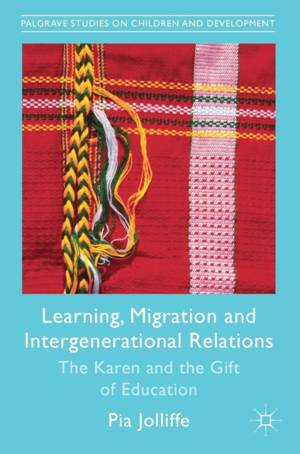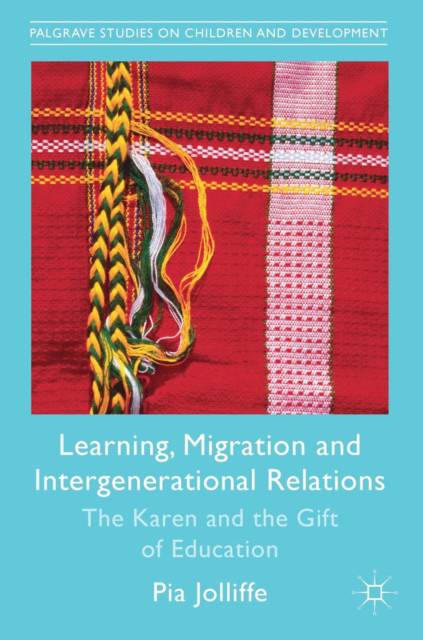
- Retrait gratuit dans votre magasin Club
- 7.000.000 titres dans notre catalogue
- Payer en toute sécurité
- Toujours un magasin près de chez vous
- Retrait gratuit dans votre magasin Club
- 7.000.0000 titres dans notre catalogue
- Payer en toute sécurité
- Toujours un magasin près de chez vous
Learning, Migration and Intergenerational Relations
The Karen and the Gift of Education
Pia JolliffeDescription
Focusing on the Karen people in Burma, Thailand and the United Kingdom, this book analyses how global, regional and local developments affect patterns of learning. It combines historical and ethnographic research to explore the mutual shaping of intergenerational relations and children's practical and formal learning within a context of migration and socio-political change. In this endeavour, Pia Jolliffe discusses traditional patterns of socio-cultural learning within Karen communities as well as the role of Christian missionaries in introducing schooling to the Karen in Burma and in Thailand. This is followed by an analysis of children's migration for education in northern Thailand where state schools often encourage students' aspirations towards upward social mobility at the same time as schools reproduce social inequality between the rural Karen and urban Thai society. The author draws attention to international humanitarian agencies who deliver education to refugees and migrants at the Thai-Burma border, as well as the role of UK government schools in the process of resettling Karen refugees. In this way, the book analyses the connections between learning, migration and intergenerational relations in households, schools and other institutions at the local, regional and global level.
Spécifications
Parties prenantes
- Auteur(s) :
- Editeur:
Contenu
- Nombre de pages :
- 180
- Langue:
- Anglais
- Collection :
Caractéristiques
- EAN:
- 9781137572172
- Date de parution :
- 21-09-16
- Format:
- Livre relié
- Format numérique:
- Genaaid
- Dimensions :
- 155 mm x 221 mm
- Poids :
- 362 g

Les avis
Nous publions uniquement les avis qui respectent les conditions requises. Consultez nos conditions pour les avis.






